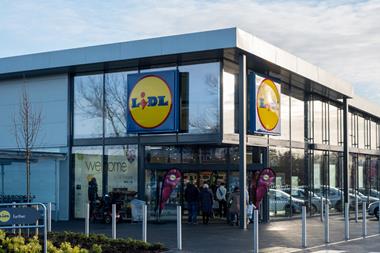from Keith Wilson, controller, external sales, Sainsbury
Sir; As the debate between the high street and supermarkets intensifies, I think it has become necessary to try to introduce some real objectivity into the argument and place a few weights on the supermarkets’ side of the scales.
The claims from Nick Goulding and Sean Carter in last week’s Readers’ Letters in The Grocer are typical of the attitudes all along of the high street lobby - that, put simply, supermarkets are destroying the high street.
This is very emotive and cause-worthy, but what exactly do they mean? What is being destroyed (if anything) and to whose detriment? Who, in reality, are the destroyers?
Are we witnessing a true retailing Armageddon or merely the natural evolution of a marketplace?
If I understand the principal argument of the high street lobby correctly, their concern is simply that either an out-of-town supermarket or a supermarket convenience store on the high street will lead to the closure of the independent high street grocer in that locality.
An advocate of the truly free marketplace will, of course, simply rest his case on the contention that that is quite simply (and correctly) competition at work. Naturally this would invoke cries of “but the competition is so unfair, because of the supermarkets’ corporate strength!” from the high street lobby and, as it happens, I would have some sympathy with that view.
I do not deny that the demise of the high street grocer is probably being accelerated by the growth of the supermarkets. Tragic as that may be for the retailers concerned, in the modern commercial environment I’m afraid no one is entitled to their preferred employment. It’s nice if you can get it, but the realities may be different. Ask mine workers, ship builders and car makers to name but a few.
As for shoppers’ choice, product range and pricing, I fail to see how these are adversely impacted by the arrival of the supermarket. It is not the mere arrival of a supermarket into a locality that allegedly destroys the high street grocer. It happens because the shopper chooses to abandon the local independent for the perceived benefits of the supermarket. That is democracy, free market competition, call it what you wish, at work.
There is more than one side to the debate and the reality is not quite as simple as the high street lobby would have us believe it to be.
Sir; As the debate between the high street and supermarkets intensifies, I think it has become necessary to try to introduce some real objectivity into the argument and place a few weights on the supermarkets’ side of the scales.
The claims from Nick Goulding and Sean Carter in last week’s Readers’ Letters in The Grocer are typical of the attitudes all along of the high street lobby - that, put simply, supermarkets are destroying the high street.
This is very emotive and cause-worthy, but what exactly do they mean? What is being destroyed (if anything) and to whose detriment? Who, in reality, are the destroyers?
Are we witnessing a true retailing Armageddon or merely the natural evolution of a marketplace?
If I understand the principal argument of the high street lobby correctly, their concern is simply that either an out-of-town supermarket or a supermarket convenience store on the high street will lead to the closure of the independent high street grocer in that locality.
An advocate of the truly free marketplace will, of course, simply rest his case on the contention that that is quite simply (and correctly) competition at work. Naturally this would invoke cries of “but the competition is so unfair, because of the supermarkets’ corporate strength!” from the high street lobby and, as it happens, I would have some sympathy with that view.
I do not deny that the demise of the high street grocer is probably being accelerated by the growth of the supermarkets. Tragic as that may be for the retailers concerned, in the modern commercial environment I’m afraid no one is entitled to their preferred employment. It’s nice if you can get it, but the realities may be different. Ask mine workers, ship builders and car makers to name but a few.
As for shoppers’ choice, product range and pricing, I fail to see how these are adversely impacted by the arrival of the supermarket. It is not the mere arrival of a supermarket into a locality that allegedly destroys the high street grocer. It happens because the shopper chooses to abandon the local independent for the perceived benefits of the supermarket. That is democracy, free market competition, call it what you wish, at work.
There is more than one side to the debate and the reality is not quite as simple as the high street lobby would have us believe it to be.


















No comments yet